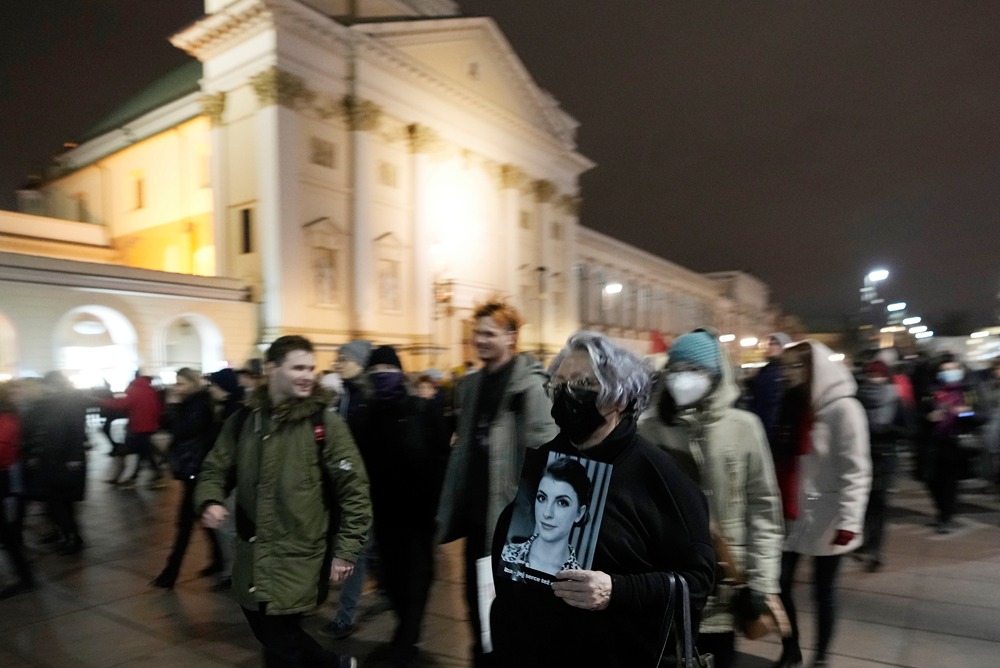Thousands took to the streets in Warsaw and around 70 other Polish towns in massive pro-abortion protests.
Last week, Polish media picked up the story of 30-year-old Iza, who was sent to hospital in Pszczyna during the 22nd week of her pregnancy when her water broke. She died in hospital due to septic shock. The deceased’s family and lawyer are of the opinion that her doctors chose not to terminate her pregnancy despite the fact that her fetus did not possess enough amniotic fluid to survive.
In the wake of her death, liberal-left activists and organizations called for protests on Saturday under the “Not one more” slogan. Many protesters held portraits of the 30-year-old Iza and also marched with banners with slogans such as “her heart was still beating” and “women’s rights are human rights.”
Several prominent opposition politicians also took part in the protests, including Civic Platform leader Donald Tusk. Opposition MP Barbara Nowacka posted a photo on Twitter in which opposition politicians were preparing to participate in the protests.
Sieci weeklyEeditor-in-Chief Jacek Karnowski told TVP Info public news television that organizing protests due to the tragedy was a “purely political move.”
“The tragedy which took place in Pszczyna cannot be connected to the Constitutional Tribunal’s ruling. The verdict did not affect laws on terminating pregnancies that would harm a woman’s safety and health. The doctors could have acted but a mistake was made,” he said.
The political abuse of tragedy
Karnowski went on to say, “This is an attempt to resurrect the Women’s Strike and the pro-abortion protests. This is a constant characteristic of the opposition which every now and then comes up with a subject that is important to many Poles and uses it to attempt to try and overthrow the government.”
The Ministry of Health has released a special statement for doctors which confirmed that, under current laws, the life of the mother is the most important, and that abortion can be carried out where her life or health is at risk. The Constitutional Tribunal’s ban on eugenic abortion from 2020 did not change this.






